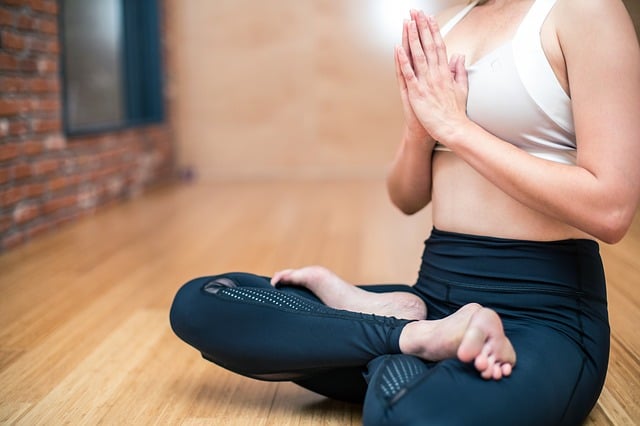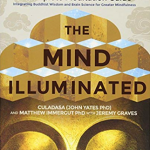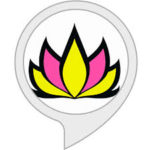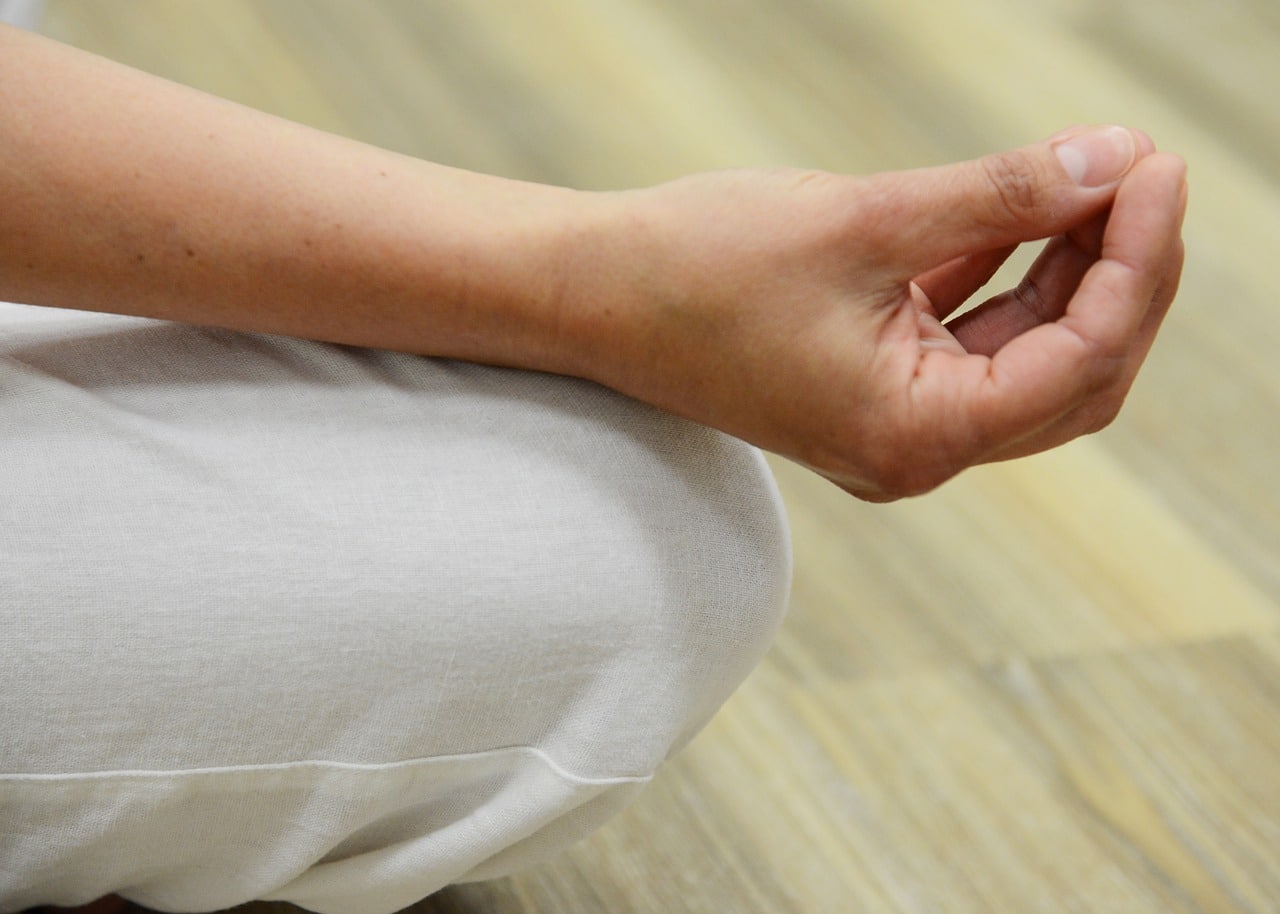Meditation
Calm the Mind & the Soul will Speak
Meditation can make life simpler, happier and more peaceful. It is easy to start, doesn't cost a penny and can have immediate benefits. Everything you need to know here.
Meditation Basics

What is Meditation?
Simply put meditation is the practice of being still and focussed in order to achieve a clear, calm and peaceful state of mind. It is a way of training the mind, similar to how exercise trains the body. It is about being in the here and now, clearing your mind & thoughts and finding a quiet space to reflect. Being present will make you focussed and appreciate & understand life infinitely more.
Why Do It?
People meditate for a variety of reasons however the main reason is in order to feel happier, more calm and peaceful. People meditate in order to train their brain. Some for spiritual and/or religious reasons, in order to find enlightenment or self-realisation. And some to help relieve the symptoms of anxiety, depression, stress or general pain. There are a number of benefits to meditation, find a comprehensive list further down this article
How to Meditate
Meditation is generally very simple (and free). Find a simple practice further down this article.
10 Basic Meditation Facts

- The word itself has a mixture of origins, including from the French meditacion meaning, “thought, reflection, study”. It may also be derived from the verb Latin Meditari meaning, “to think, contemplate, devise, ponder.” Another school of thought is that it comes from Euro-Indo roots from the word “Med-” meaning to “take appropriate measure”
- It has been around for thousands (2,500+) of years and originates from many religious and spiritual sources
- Nearly all major religions embrace meditation in one form or another including; Buddhism, Hinduism, Islam, Judaism & Christianity
- However in itself, it is not a religion or religious act. It can be used in religious ceremony however it is not a religious practice
- A rough estimate at the number of people practicing globally is between 200-500 million
- The amount of people meditating since 2012 has nearly tripled
- It is a highly effective, scientifically proven method of changing the brain’s neuroplasticity, i.e. way the brain works and processes information
- Meditators are able to sustain a higher range of gamma waves which allows them to be in better control of their thoughts
- Meditation has a number of proven health benefits from lowering blood pressure to decreasing stress and anxiety levels
- To gain the full benefits, a full twice daily 20 minute meditation is recommended however any small amount can bring positive benefits
7 Interesting Meditation Facts

- It is said that the focussing of attention that meditation brings helped bring about the most recent form of human evolution
- Many companies, corporations, local trusts and groups now run courses on meditation due to the number of benefits that it has been proven to bring. Disney were one of the first corporations to offer meditation classes at work. Google offers multiple meditation classes to it’s employees
- The use of drugs while meditating varies by religion. Buddhists & Hindus advise against avoiding intoxicants whereas the use of psychoactive substances is prevalent in many religious rituals (e.g. the use of Cannabis by Rastafarians or the use of Peyote in North American rituals)
- The largest online meditation lesson was held by the Chopra Wellbeing Centre to over 30,000 people
- Meditation can be as effective as morphine as a painkiller
- Women are more likely to meditate than men
- The meditation market in the US is said to worth more than $1billion
22 Amazing Benefits of Meditation

- Increase in happiness
- Enhanced sense of calm
- Help in interpreting and understanding our thoughts and emotions
- Changing the way our mind works – Allows us to be in control of our thoughts and ways of thinking
- Can help lessen stress, anxiety and depression
- Enhanced and improved memory function
- Can help deal with pain – in fact, it can be as effective as morphine at dealing with pain
- Boosts health
- Improved productivity
- Reduce blood pressure
- Can help slow the ageing process
- Helps improve concentration span
- Boost to our Social Life
- Increase in Self Control
- Can provide greater Wisdom
- Gain deeper spiritual connections
- Can help prevent heart disease and heart attack
- Helps relaxation and aids sleep
- Can be used to help conquer addictions
- Increases sex drive and libido
- Children with ADHD who are taught meditation are proven to be able to concentrate better at school
- Can help us increase our kindness and sense of gratefulness
7 Types of Meditation

There are many types of meditation. Detailed information on the most popular types below. Take a look at the further exploration for more in depth information.
1. Mindfulness (or Breath)
Mindfulness meditation is about remaining present and focussed throughout the meditation, analysing thoughts that come into the mind without judgement. It is taking a step back from the conscious mind and looking at thoughts processes and behavioural interpretation of thoughts. This has origins in traditional Buddhist forms of meditation however it is now extremely popular in the West
2. Spiritual
An essential part of Buddhism, Taoism & Hinduism and mainly an Eastern form of meditation however also creeps into many other religions (e.g. Christianity). This type of meditation provides a deeper spiritual link to a divine presence or being
3. Transcendental
The aim of transcendental meditation is total enlightenment, i.e. to transcend and rise above the self. This is not a beginners type of meditation and often takes teaching to perfect.
Some transcendental meditation teachers will provide their students with their own personalised mantra to chant whilst transcending. This is personalised to the student and can never be shared or even spoken aloud.
4. Chanting
Type of meditation where a word, phrase or sound is continually repeated to allow the meditator to focus. A popular, well known sound being “Om.” Om represents the consciousness of the universe condensed into a sound. Per Transcendental meditation above, some chanting meditation involves a personalised chant or “Mantra.”
5. Chakra Mediation
Focuses on the seven Chakras within the body. Chakra is sanskrit for wheel and embodies the smooth movement, power and harmony of the body. Chakras are centres of energy across the body. Chakra meditation focuses on these 7 areas to improve the balance between them and overall physical and mental wellbeing
6. Movement (or Yoga) Meditation
Utilising movement for focus whilst meditating. Any yoga poses or deliberate body movements can be used to concentrate the mind
7. Guided or Unguided
Not an actual type of meditation as such however any of the above can be guided or unguided meditations. A spiritual leader or meditation guide can lead you through a meditation or you can (very easily) undertake meditation on your own.
How Meditation Works

Meditation & Brain Waves
In short, meditation works by slowing down brain waves. If we can slow down our brain waves we can have more time to analyse our thoughts and have the ability to clear our mind.
There are 5 different types of brain waves (below). The first 3 account for our day to day thinking. No’s 4 & 5 are deeper, more reflective states of being
- Gamma Waves – Hyper alert state, most commonly seen in learning
- Beta Waves – Our general day to day thinking. These are the most common thought waves while we are awake
- Alpha Waves – Ingrained thinking
- Theta Waves – A state of relaxation and calm
- Delta Waves – Deep sleep waves
As we go through no’s 1 -5, the brain waves slow down. Meditation allows us to train the brain to slow down our thought processes as far as theta waves above. Over time the brain is retrained to be more calm and reflective
How to Meditate
A simple breath meditation practice to try at home
- Sit in a comfortable position
- Ensure your back is straight where possible (strong back, soft front)
- Set a timer for 5 minutes
- Close your eyes
- Breath in through your nose and out through your mouth
- Concentrate on your breath
- See your thoughts as they are, just mere thoughts gliding through your mind like clouds through the sky. Allow them to pass refocusing on the breath as needed
- Every time a thought comes into your head observe how you react to it and then let it go. Refocus on your breath and focus on keeping a clear mind
- Stay in position until the timer ends
- When the 5 minutes is up, open your eyes and continue with your day
See if you can build the 5 minutes up to 10 minutes. Meditating in the morning is a great way to start the day. Meditating in the evening is helpful in relaxing after a hectic day.
A Guided Breath Meditation
Try meditation by clicking here
Further Exploration - External Articles & Media

Wikipedia: Meditation
A comprehensive guide to meditation from the ever reliable Wikipedia

Video: Debunking the 5 Most Common Meditation Myths
A TEDx talk from Light Watkins looking at 5 common myths that can put people off getting involved in meditation

Article: Meditation for Beginners
A guide for beginners from Headspace covering the benefits, experience, practicalities and much more

Article: Why is Meditation Important? 6 Facts You Need to Know
Mindworks, the meditation app, brings you some great facts about meditation from the benefits to who is suitable to practice

Book: The Mind Illuminated
A very well received book by John Yates (Phd) providing a Complete Meditation Guide Integrating Buddhist Wisdom and Brain Science for Greater Mindfulness
**Please note, this is one of the very few affiliate links on Peaceful Soul**

Article: A Beginner's Guide to Meditation
A comprehensive beginners guide from Yoga Journal running through everything from what meditation is through to when and how to practice

Article: Scientific Benefits of Meditation – 76 things you might be missing out on
Liveanddare.com brings an extensive list benefits that meditation can bring to us

Video: 5 Shocking Benefits Of Meditation
A great video from the Mitch Manly Youtube Channel discussing some of the benefits of meditation. It also has interviews with a number of well known faces who talk about their experiences and the benefits they have seen.

Article: 12 Science-Based Benefits of Meditation
Healthline list 12 benefits of meditation including information about the scientific studies to prove them

Article: Scientific Reasons to Start Meditation
Within this article, Emma M. Seppälä Ph.D from Psychology Today reviews the scientific reasons to start meditation. With some great insights backed up by scientific fact take a read if you are still debating the benefits of meditation.

Forum: Meditation
Sub-reddit on Reddit dedicated to meditation including weekly discussion posts and hundreds of different discussions on the subject

Article: 10 Amazing Benefits Of Meditating Every Morning
Mindbodygreen take a look at the benefits of meditating every morning

Article: What is the best type of meditation?
Medical News Today delves into 7 different types of mediation looking at the purpose and benefits each bring

Article: Which Type of Meditation Is Right for Me?
Healthline covers the basic types of meditation and looks into which type of meditation might be right for you

Video: Mindfulness & Transcendental Meditation
The relationship between mindfulness & transcendental meditation explained by Dr Gemma Beckley Independent Teacher of Transcendental Meditation (see www.meditationtrust.com)

Video: The 4 Main Types Of Meditation Styles Explained
A Youtube video from Mindvalley covering what they denote as the 4 main types of meditation; Concentration, Contemplation, Chanting, Transcending

Article: An Overview of 23 Meditation Techniques
Live & Dare identify 23 types/techniques of meditation. They assist with identifying the right practice and approach of meditation for you.

Article: 16 Types of Meditation
A hugely comprehensive guide from Headspace who identify 16 different types of meditation. They talk about general categories followed by information on the types of meditation available on the Headspace app

Video: How Does Meditation Change the Brain?
A short video from Scientific American explaining the results from scientific studies that show how meditation alters brain waves and pathways in order to bring about benefits

Article: Meditation: In Depth
An in depth look at meditation from the United States National Institute of Health. Looking at various subjects including how meditation affects the brain and the science/studies that have been conducted

Article: Your Brain on Meditation
An article from Psychology today taking an in depth look at how meditation affects the brain

Article: Meditation for Beginners: 20 Practical Tips for Understanding the Mind
Zen habits provides 20 very practical tip for beginner meditators.

Article: The benefits of meditation
An impressive study completed by the Massachusetts Institute of Technology (MIT) & Harvard neuroscientists showing the potential reason why meditation can help with chronic pain

Article: Meditation 101: The Neuroscience of Why Meditation Works
Huffpost article digging into the neuroscience and brainwave patterns that bring about the benefits of meditation

Video: An introduction to easy meditation
A series of short videos from Headspace (on the Guardian website) providing an introduction to meditation

App: Insight Timer - App for Android & IOS
Insight Timer is a free App providing you with a number of free meditation practices, a free beginners course, a timer and a huge community practicing meditation. Paid course are also available through the app.

Music: "Instant Relief From Anxiety & Stress"
"Meditation and Healing" channel on Youtube brings you peaceful meditation music. Deeply relaxing & healing music

Video: Treating Chronic Pain With Meditation
The Atlantic look at how meditation can be used to treat chronic pain

Video: The Mindfulness Meditation - Guided 10 Minutes
A 10 minute mindfulness meditation on Youtube from the Honest Guys. Mindfulness meditation can show how you to be present in the moment, let go of thoughts and achieve calmness.

Video: The No Bullsh*t Guide to Meditation
This video on Youtube by Leo from Actualized.org is a frank introduction to meditation. Cutting through some of the myths and mysteriousness that surrounds meditation, this guide will show the basics and provide a great introduction.

Article: Meditation for Beginners: 20 Practical Tips for Understanding the Mind
20 practical tips from Zen Habits including just sitting for 2 minutes and counting your breaths

Video: How to Meditate - Meditation for Beginners - Day 1
Day 1 of a 30 day meditation challenge. This is an excellent way to build up your knowledge and get deeper into meditation. At time of writing this is one of the most popular meditation Youtube videos with over 3 million views.

Article: 15 Surprising Facts About the Science of Meditation
Online Psychology Degree detail 15 surprising scientific facts

Apps: The Best Meditation Apps to Help With Anxiety
11 apps from The Oprah Magazine including Calm & Aura
Where to Go Next on Peaceful Soul

Thoughts
How we think shapes our entire universe. Find information on how our thoughts shape us and how we control them here

Exercise
Exercise keeps us fit, healthy and in optimum condition. How it benefits us and some simple exercises here

Learning
Learning keeps our mind working and keeps us alive. Find out how learning helps us and 50 learning opportunities here


Hey, awesome! Glad you enjoyed PS. See you again soon 🙂